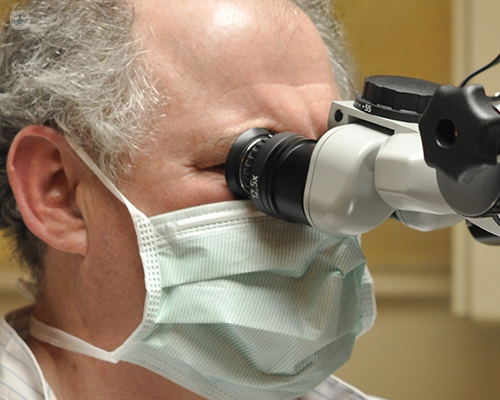“Not as bad as having a root canal…” - demystifying root canal treatment
Written by:As the old adage goes, it implies that a root canal treatment is one of the worst experiences that can be inflicted on a human being. Regrettably anecdotal evidence would suggest that very often patients do describe the experience using terms like: ‘it was very painful’ and ‘I had to go back six times’, but it does not have to be like that, our expert endodontist Dr Anthony Druttman explains.

When the root canal procedure is carried out correctly it is painless, although it may take a little longer than a filling. When faced with substantial dental damage or tooth decay, this option is the best way to keep the natural teeth and preserve good dental health. Having better information about this treatment will help a patient to understand why it is often called ‘the tooth saver’.
Why do teeth need root canal treatment?
Decay in teeth is caused by bacteria and although the dental pulp (nerves and blood vessels inside the root of the tooth) often recovers from bacterial invasion, the damage over the years is cumulative and there comes a point where the pulp can no longer recover from the ‘insult’ and it dies. When the pulp becomes irreversibly damaged, then either the pulp or the tooth has to be removed. Root canal or endodontic treatment saves the tooth i.e. it avoids the need for extraction.
Read more: Root canal treatment
Is there an alternative to endodontic treatment?
Yes, the tooth can be extracted. Teeth can be replaced with bridges, implants or removable dentures and the options should be discussed with a dentist. Implants have revolutionised restorative dentistry and is often the best way to replace a tooth that has been extracted. However the dental root has often been described as nature’s implant, so wherever possible the tooth should be kept. There are situations when it is not in the patient’s best interests to keep the tooth. The options have to be considered carefully either by a general dentist or an endodontist.
How successful is endodontic treatment?
Although there are no guarantees of success, if endodontic treatment and the treatment that follows to restore the tooth to full function is carried out to a high standard, then long term success is very likely. If endodontic treatment has failed, it may be possible to retreat the tooth. If it is not possible, then the tooth may require extraction. Endodontic retreatment may be carried out by a dentist or by an endodontist, depending on the particular problems and reasons for the failure. The majority of the work of endodontic specialists is to retreat teeth where the original root treatment has not been successful.
Learn more about endodontic treatment
Should I see a dentist or an endodontist for a root canal treatment?
While all dentists are trained to carry out root canal treatments, standard can vary. The success rate of root canal treatment can be as high as 95%, but this will depend on many factors. While there are no guarantees of success, the chances of a favourable outcome are increased if the treatment is carried out by specialists who have the training, experience and often specialised equipment that general dentists do not possess. There is evidence to show that there is a significant difference in success rate between general dentists and specialists (in the UK those on the specialist register of the General Dental Council) in endodontics.



